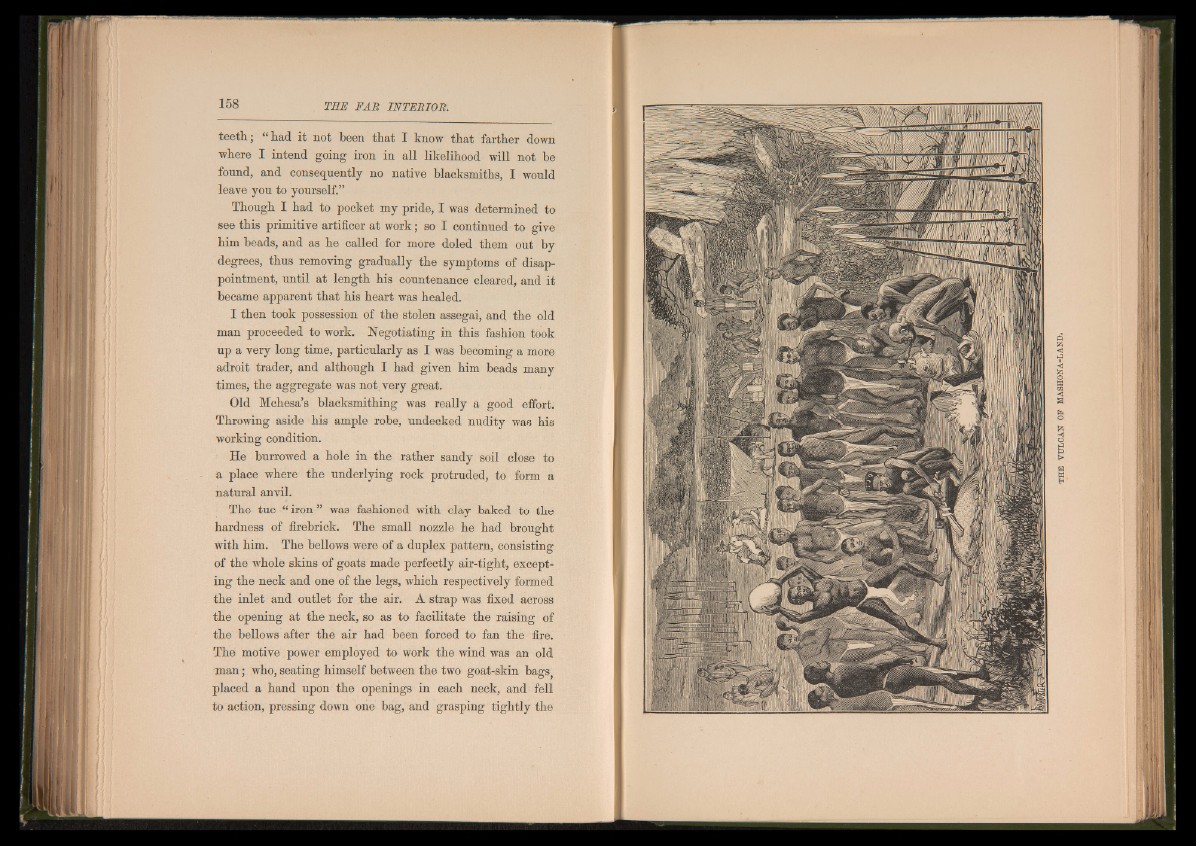
te eth; “ had it not been that I know that farther down
where I intend going iron in all likelihood will not be
found, and consequently no native blacksmiths, I would
leave you to yourself.”
Though I had to pocket my pride, I was determined to
see this primitive artificer at work; so I continued to give
him beads, and as he called for more doled them out by
degrees, thus removing gradually the symptoms of disappointment,
until at length his countenance cleared, and it
became apparent that his heart was healed.
I then took possession of the stolen assegai, and the old
man proceeded to work. Negotiating in this fashion took
up a very long time, particularly as I was becoming a more
adroit trader, and although I had given him beads many
times, the aggregate was not very great.
Old Mchesa’s blacksmithing was really a good effort.
Throwing aside his ample robe, undecked nudity was bis
working condition.
He burrowed a hole in the rather sandy soil close to
a place where the underlying rock protruded, to form a
natural anvil.
The tue “ iron” was fashioned with clay baked to the
hardness of firebrick. The small nozzle he had brought
with him. The bellows were of a duplex pattern, consisting
of the whole skins of goats made perfectly air-tight, excepting
the neck and one of the legs, which respectively formed
the inlet and outlet for the air. A strap was fixed across
the opening at the neck, so as to facilitate the raising of
the bellows after the air had been forced to fan the fire.
The motive power employed to work the wind was an old
man; who, seating himself between the two goat-skin bags,
placed a hand upon the openings in each neck, and fell
to action, pressing down one bag, and grasping tightly the